Last Saturday in Hanoi, I did two things. In the afternoon I visited an Associated Press exhibition of some of the most iconic and disturbing images from the Vietnam War. In the evening, I went to a rock concert organised by the US Embassy to mark 20 years since the establishment of diplomatic relations with Vietnam.
And I also read the news.
I ended up spending the day thinking about the US in Vietnam.
The AP exhibition was put together to mark 40 years since the end of the Vietnam War - known here as the American War.
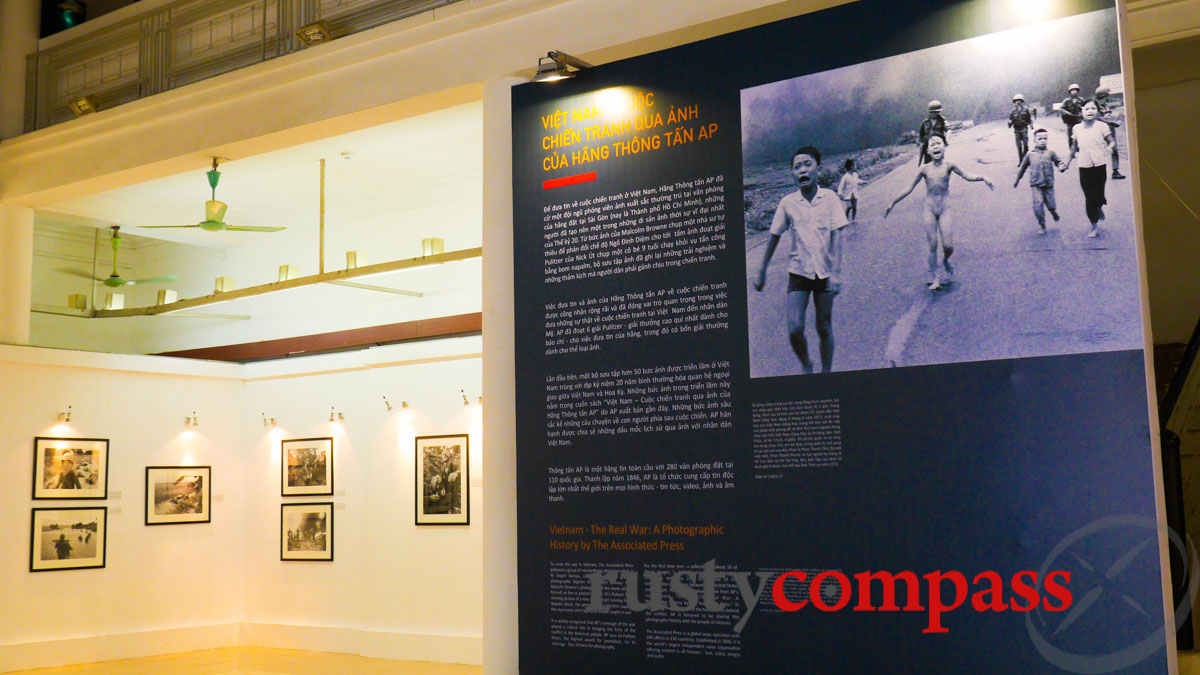
Photo: Mark Bowyer The AP 40th anniversary exhibition in Hanoi
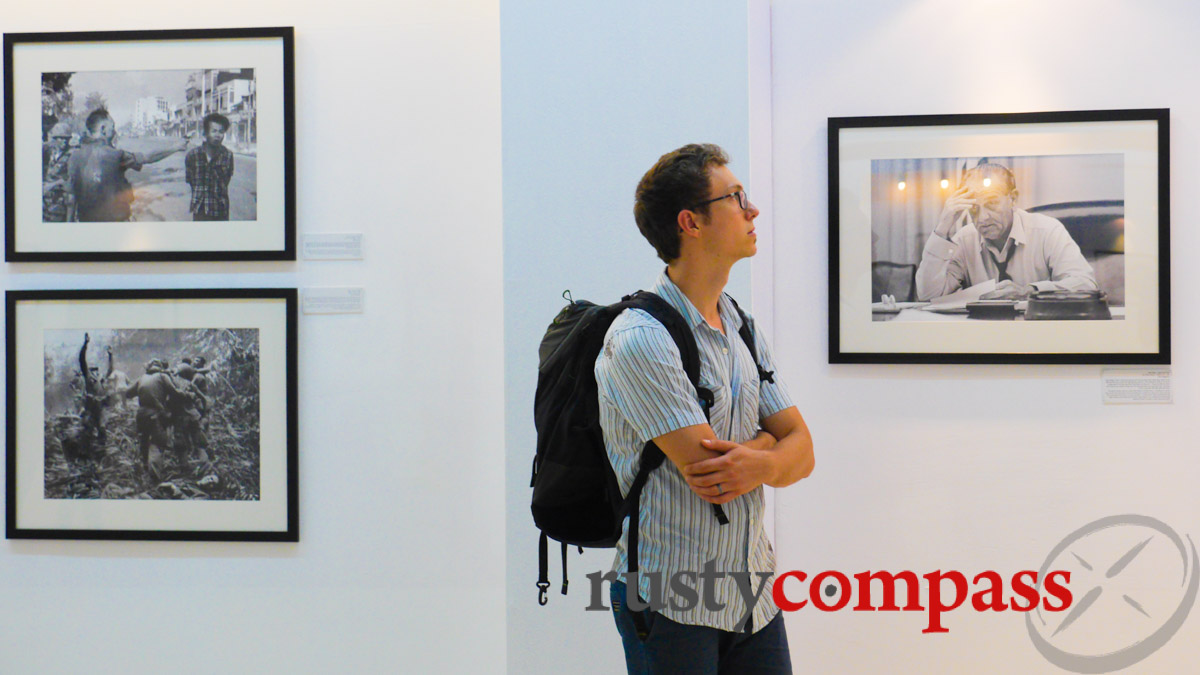
Photo: Mark Bowyer AP Exhibition in Hanoi
Whatever you make of US intentions in the 1960s and 70s, the prosecution of the war in Vietnam was founded on a flawed understanding of the enemy, an unjustified faith in military power, and showed scant regard for the lives of Vietnamese civilians and the land they lived on. Most people know that. And if you've lived in Vietnam a long time, you'll have a personal sense of it too.
The AP images recounted the tragedy.
I’d seen most of the photos many times, but they still packed a punch - especially in an exhibition where they’re all viewed together.
The evening concert couldn’t have been more different.
Called ASEAN Pride, it was a US Embassy sponsored celebration of Vietnam’s gay community - wrapped up in a twenty year celebration of renewed diplomatic ties between the US and Vietnam.
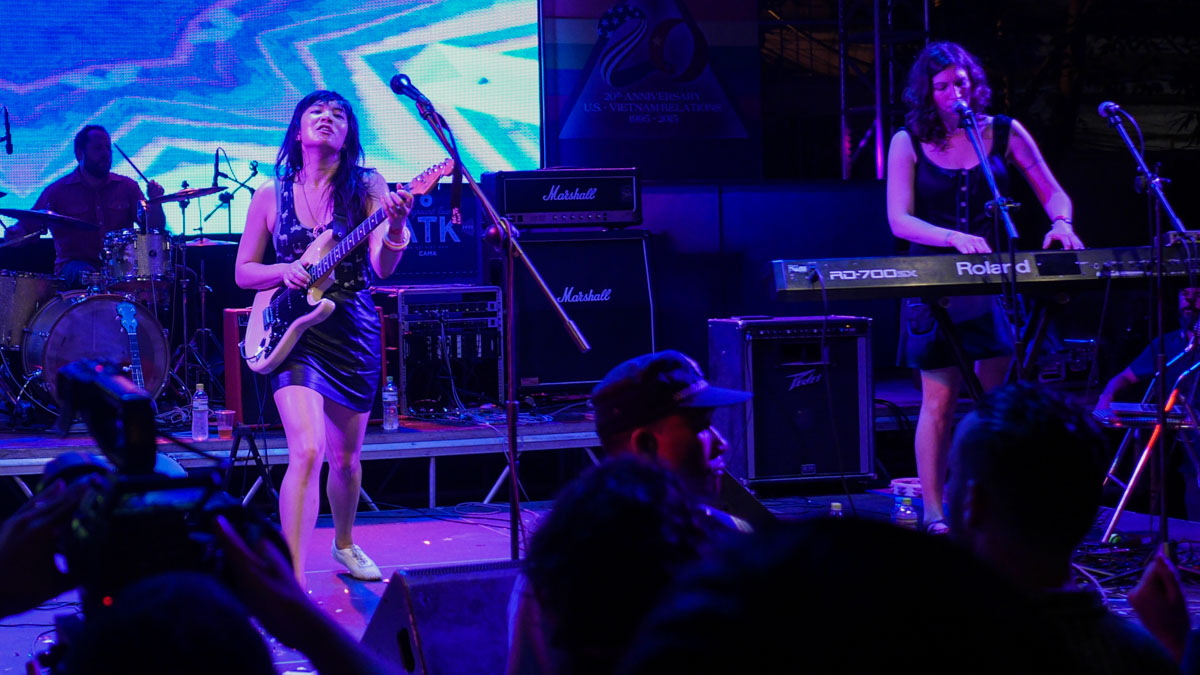
Photo: Mark Bowyer Vietnamese American Thao Nguyen performs, SEAN Pride celebration 2015
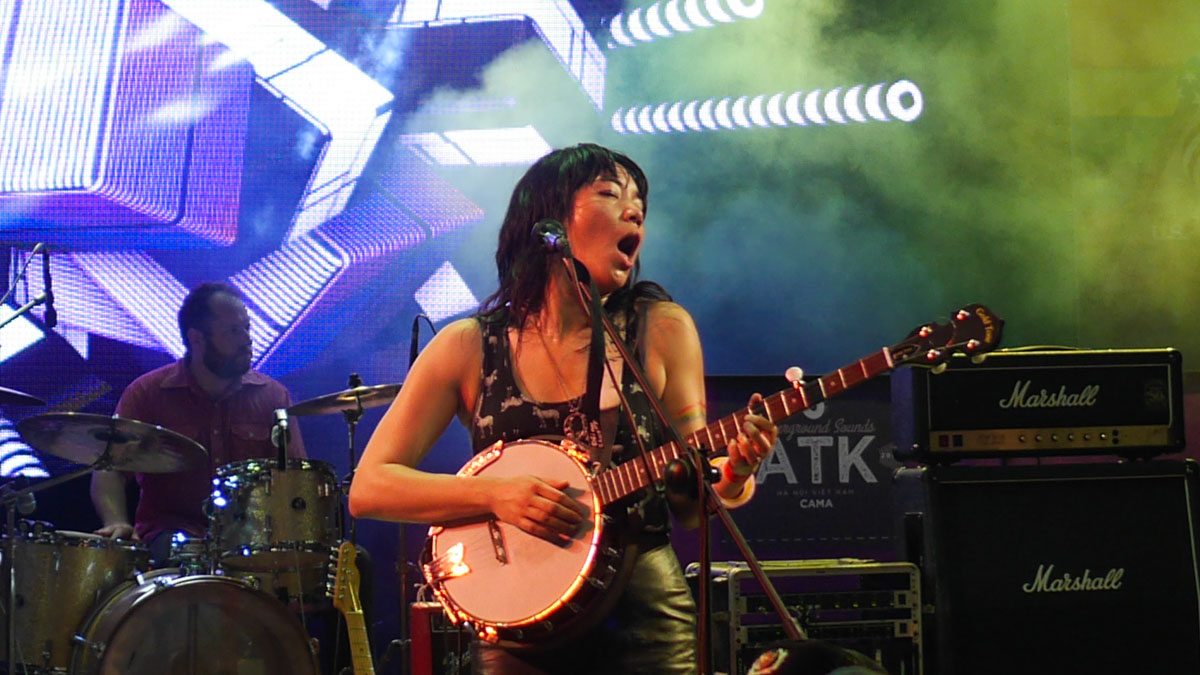
Photo: Mark Bowyer Vietnamese American Thao Nguyen performs, SEAN Pride celebration 2015
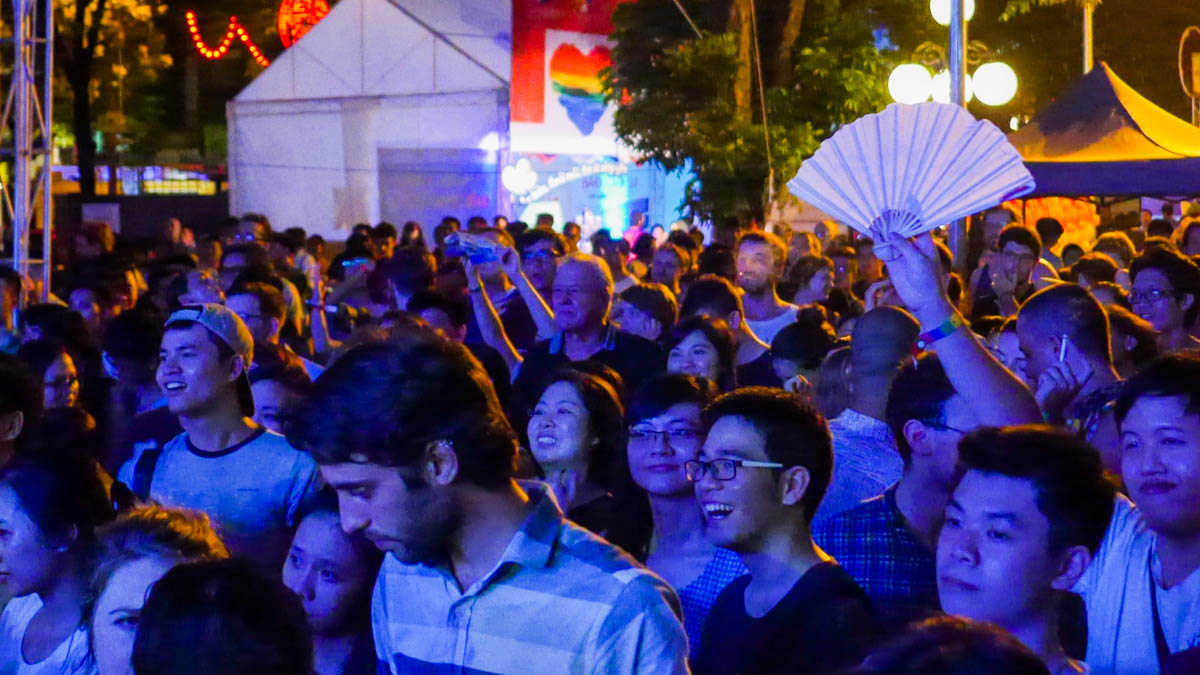
Photo: Mark Bowyer ASEAN Pride celebration 2015
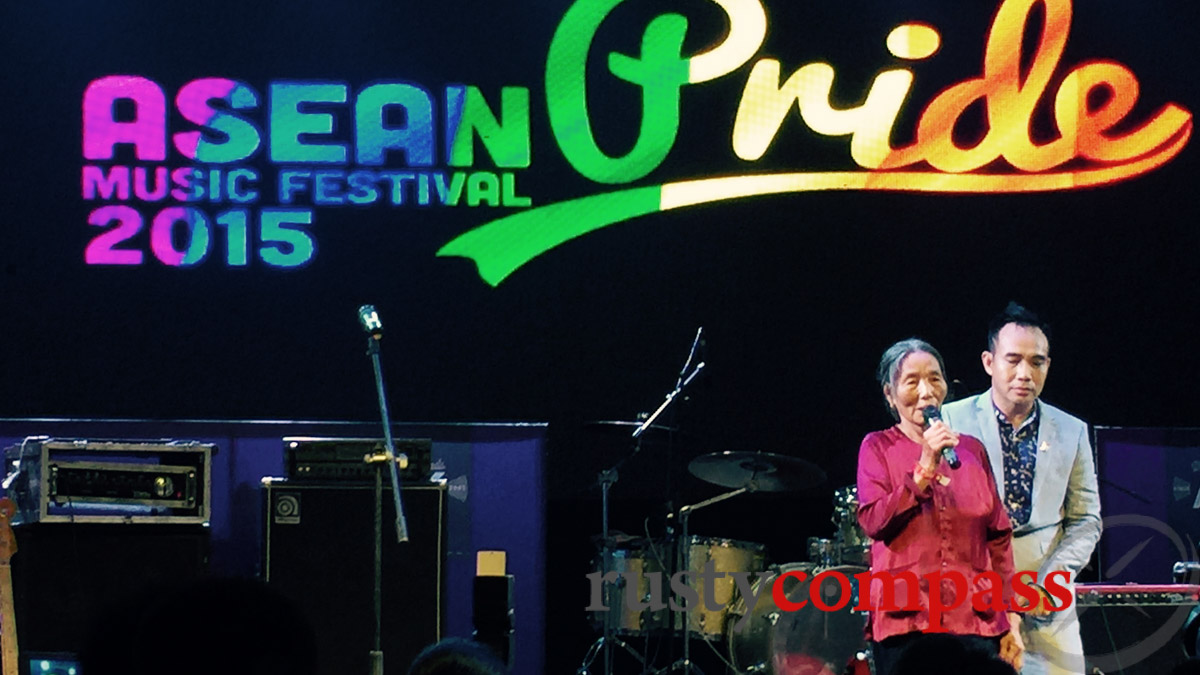
Photo: Mark Bowyer An elderly lady speaks from personal experience of the importance of acceptance. Pride Hanoi 2015
The headline act, American Vietnamese singer songwriter and activist Thao Nguyen and her band, The Get Down Stay Down, put on more than a great show. Thao Nguyen encapsulated an America of acceptance, tolerance and progress and connected beautifully with the Vietnamese audience.
It was United States soft power at work in a country with such a bitter experience of the worst of America's hard power.
If only the United States of tolerance and acceptance on display in Hanoi on Saturday night, was more representative of the reality of the nation - and its impact on the world.
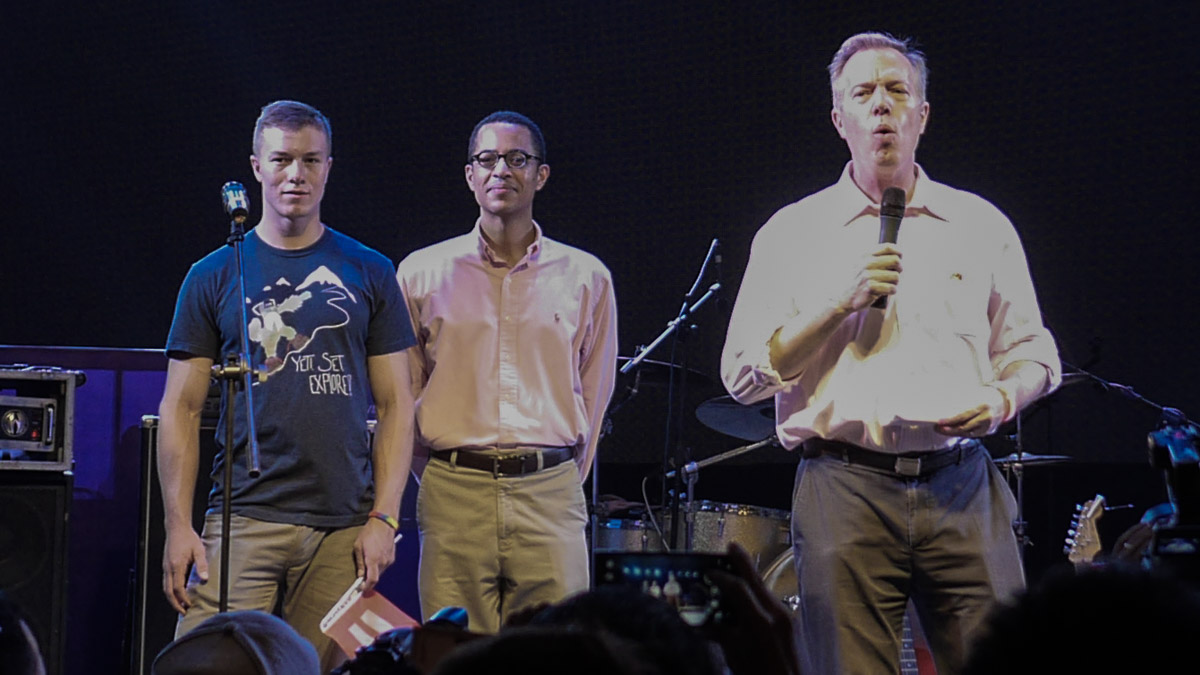
Photo: Mark Bowyer US Ambassador Ted Osius (right) ASEAN Pride celebration 2015
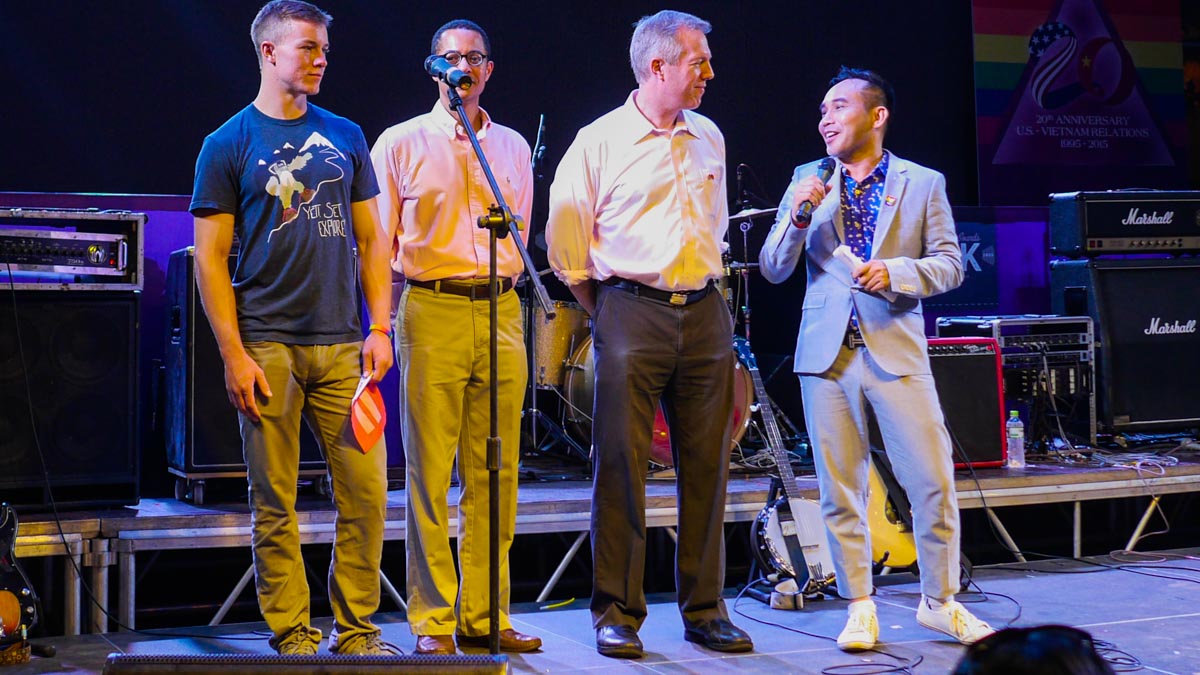
Photo: Mark Bowyer Ambassador Osius (second from right) ASEAN Pride celebration 2015
Ambassador Ted Osius, I’m told the first openly gay US Ambassador in South East Asia, took to the stage with his husband, to welcome everybody and champion the cause of gay rights and acceptance.
It was an impressive thing to see.
But as I watched Ambassador Osius in action, I was reminded that the United States itself is a long way from being a bastion of liberal progressivism. The mixed crowd of Vietnamese and foreigners at the event was probably more progressive than middle America.
Representing the US (or Australia for that matter) as a shining light of tolerance and progress aint an easy gig these days. It seems like the US is exporting values to Vietnam that are under siege at home.
After all, a large segment of the Republican right wing (perhaps some Democrats too?) would likely be horrified to know that the 20th anniversary of diplomatic relations between the US and Vietnam was being marked with a music festival celebrating the gay community.
It also occurred to me that in this region, Vietnam is already relatively progressive in terms of LGBT issues. The fact that the event occurred is enough testament to that.
I can only assume that as Ambassador Osius spoke, he was also dealing with the shock of last week’s appalling Charleston race murders and his country’s tragic inability to put sensible controls around the availability of guns.
A year of revelation of police violence against the black community would also give pause to any American proposing to export values of tolerance and progressivism to the world.
The US homefront is looking fragile - with guns, racial violence, police brutality, gaping inequality and political dysfunction - all providing ammunition for America’s enemies. US democracy's embrace of the large corporation through the Citizens United Supreme Court decision, seems to provide a blueprint for the validation of what in other countries, might be called corruption.
It was good to see a side of America on display in Hanoi that’s finding it harder to express itself at home and is often crowded out by other issues abroad.
There have always been critics of the hypocrisy of US diplomacy. I’ve been on both sides of the argument. But few could fault the conviction of Ambassador Osius.
I wondered whether Vietnam might be considering making gun control the feature of a celebration of diplomatic relations in Washington?

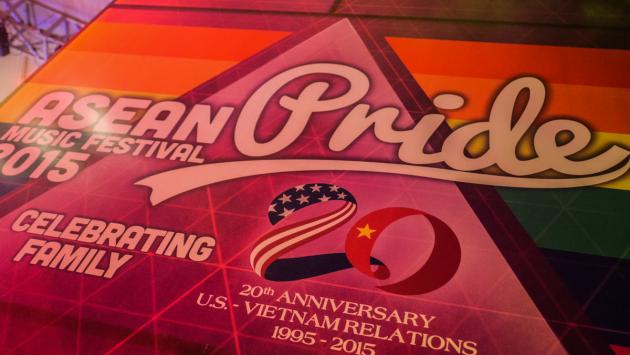



1 comment so far
Spot on, Mark. It is extraordinary how in a few short year the american public has acknowledged gay rights but still cannot come to grips with the problem of 'gun rights.'